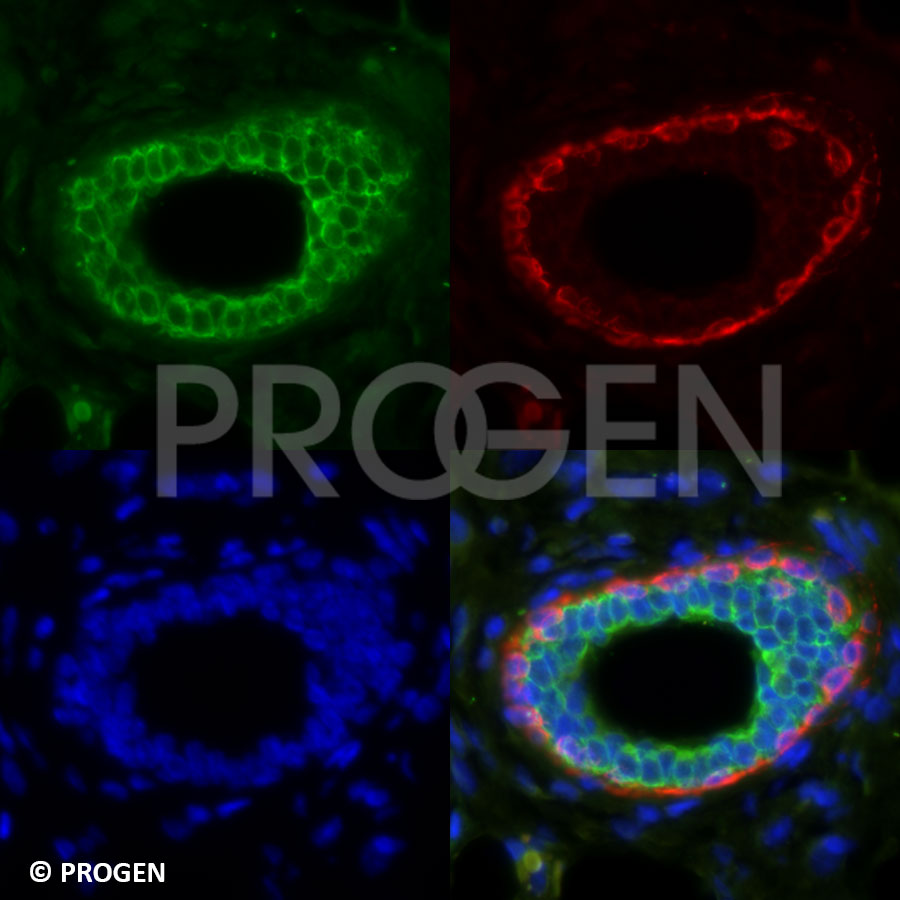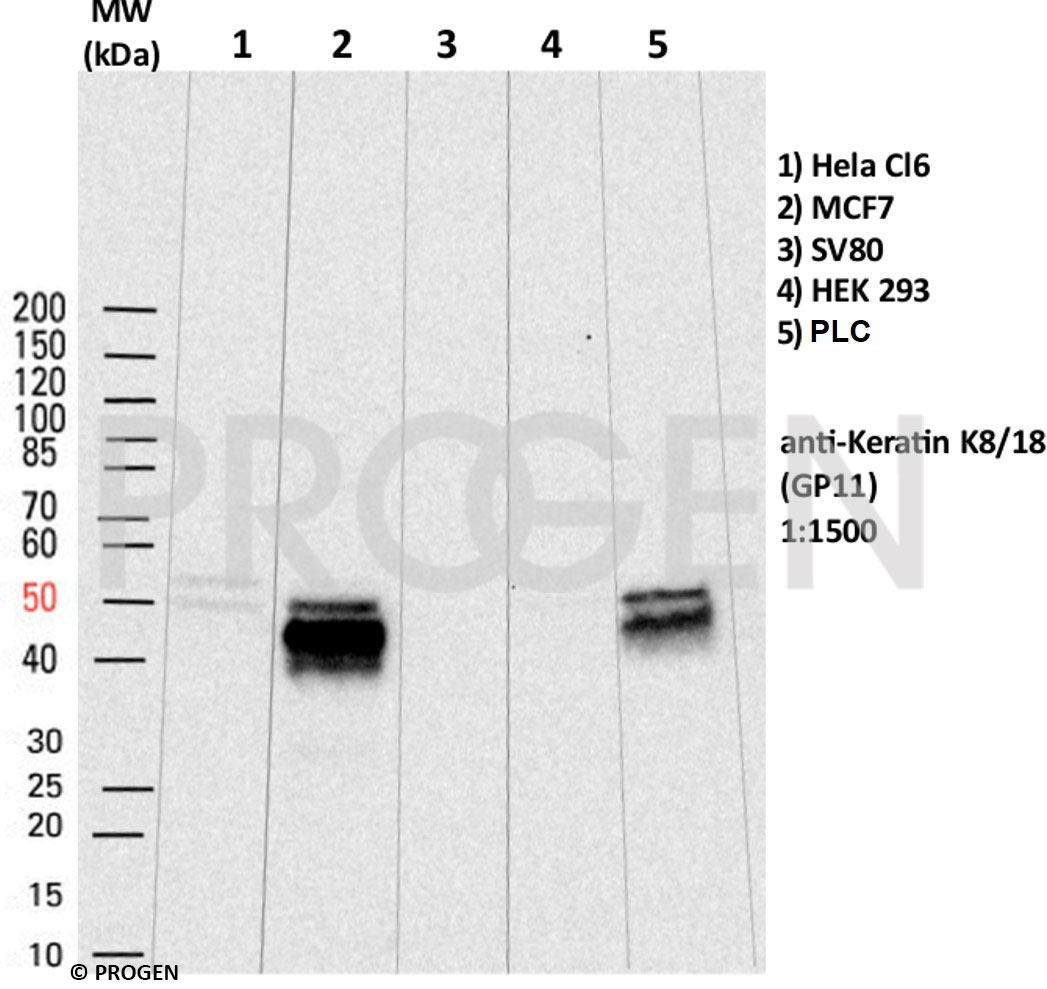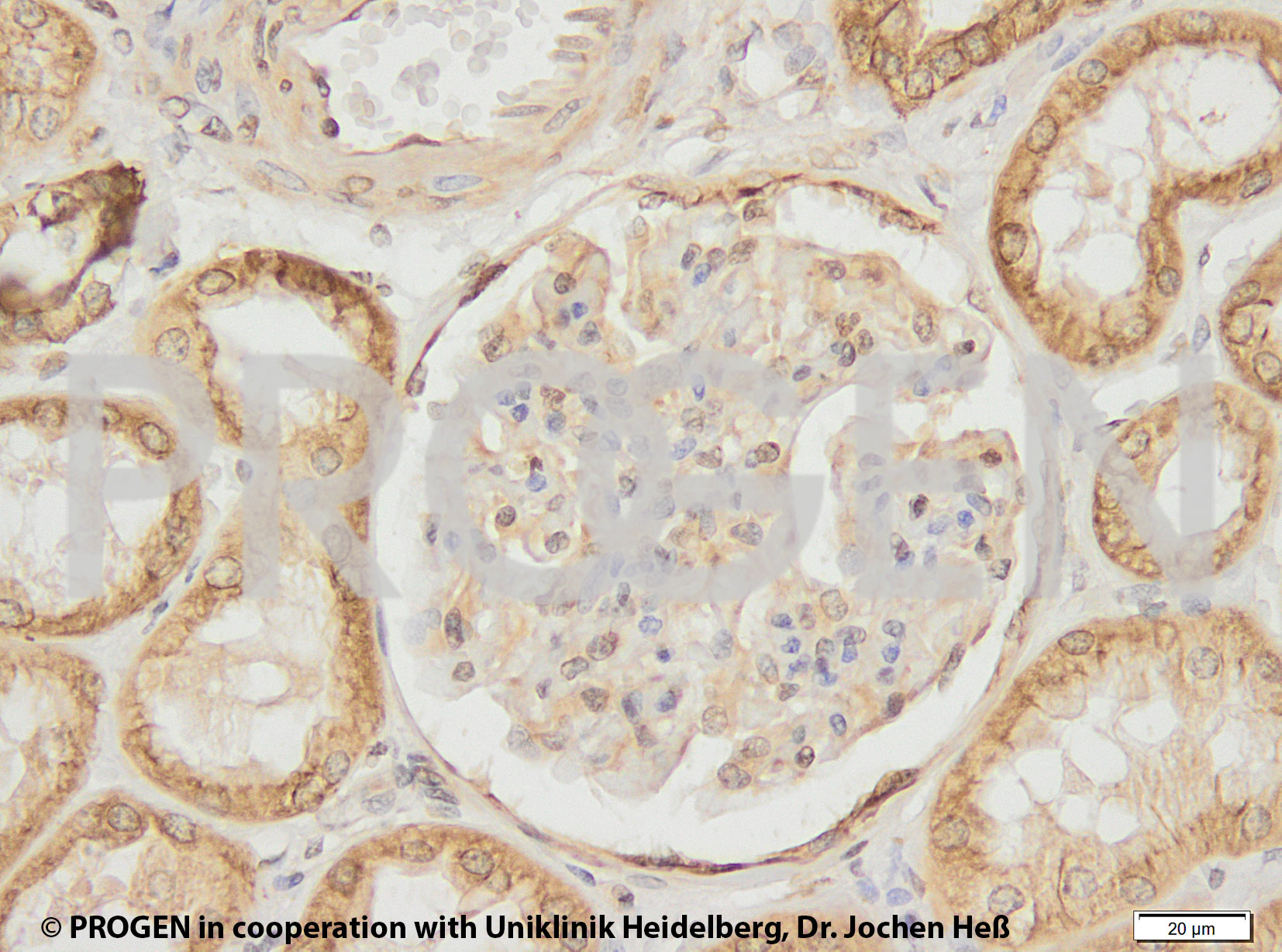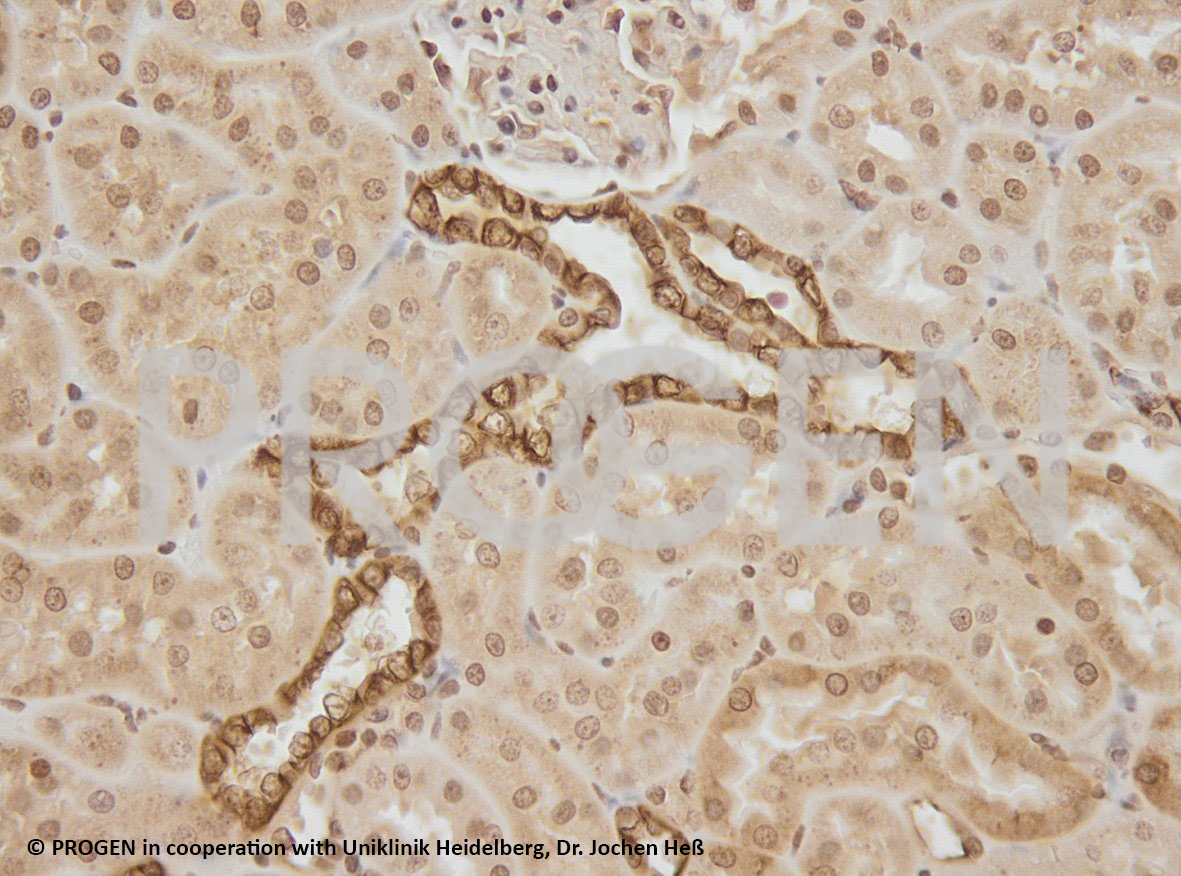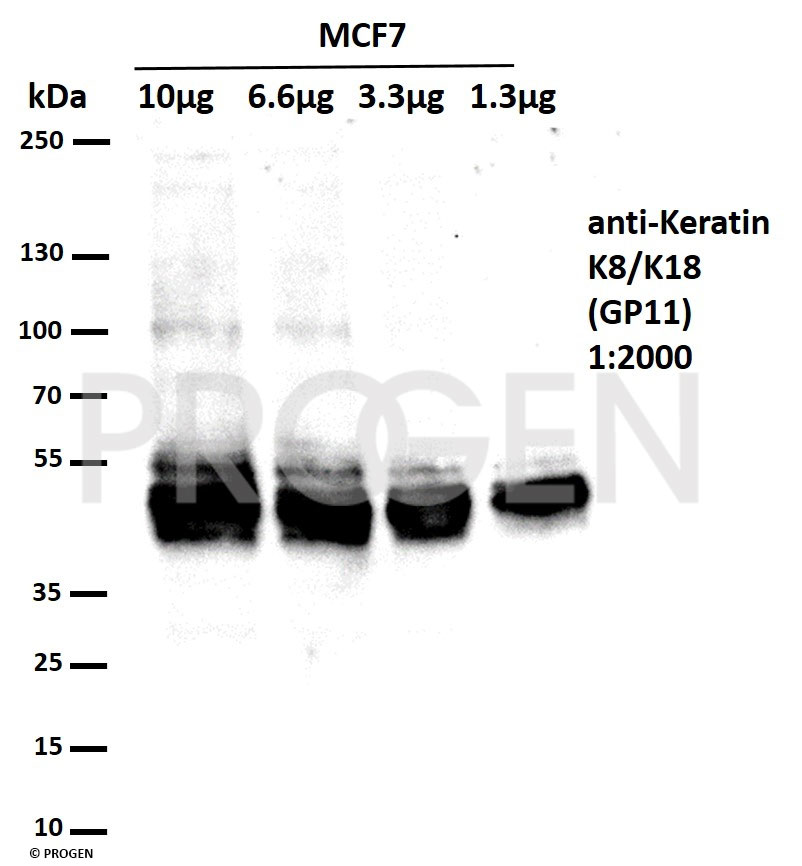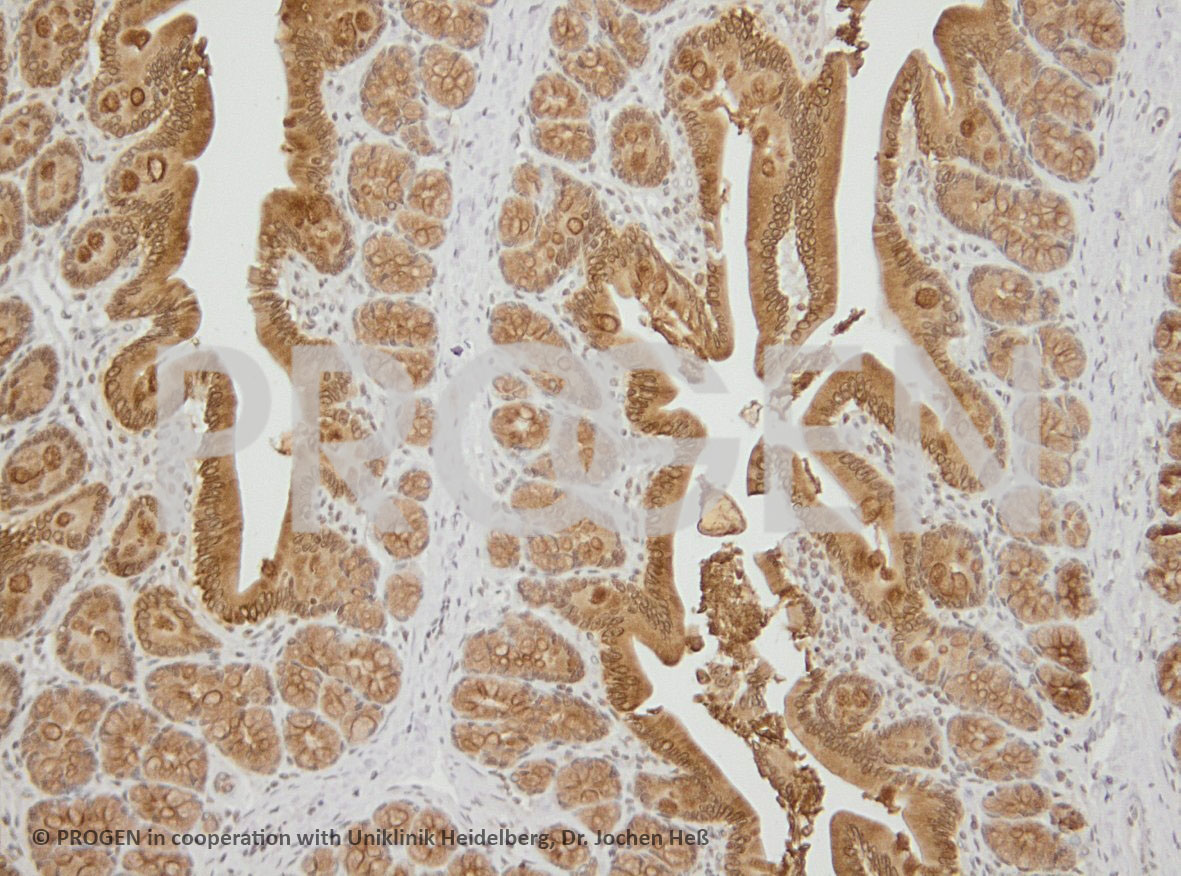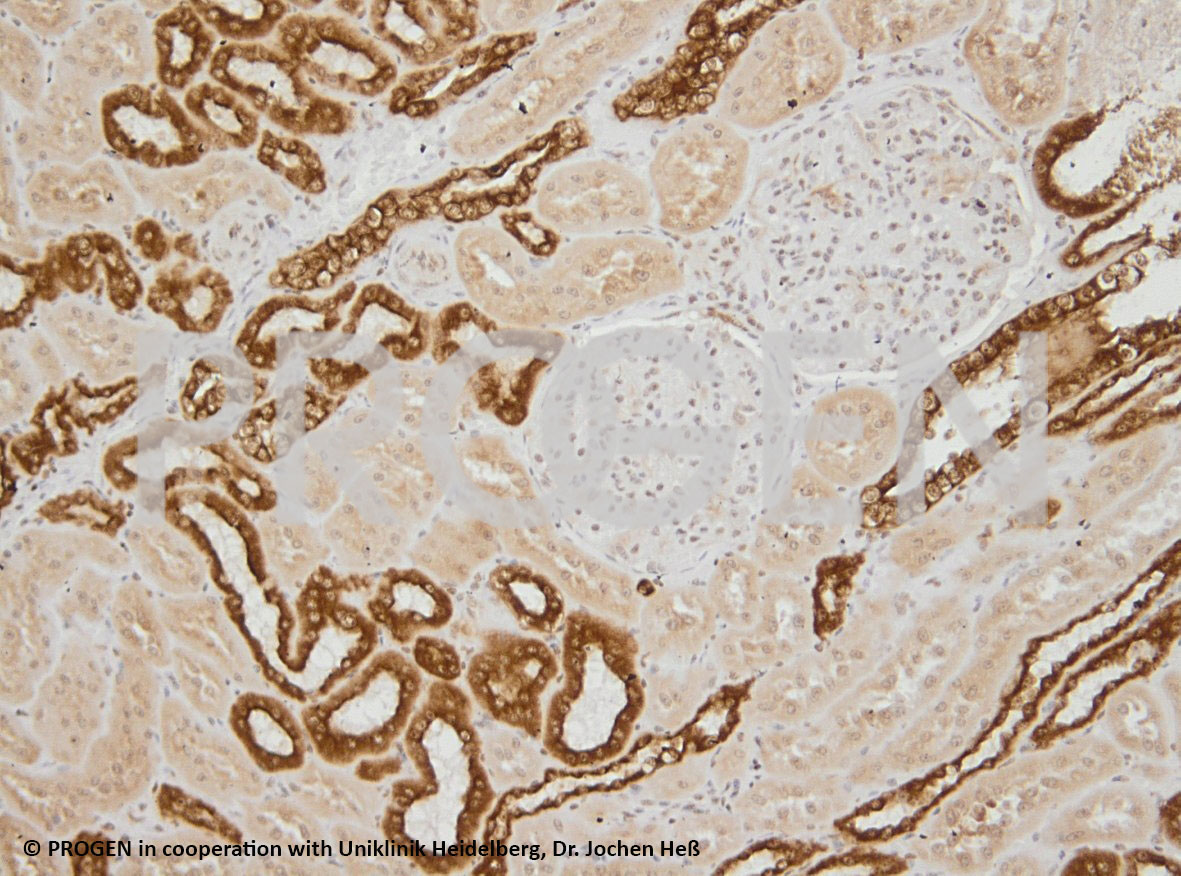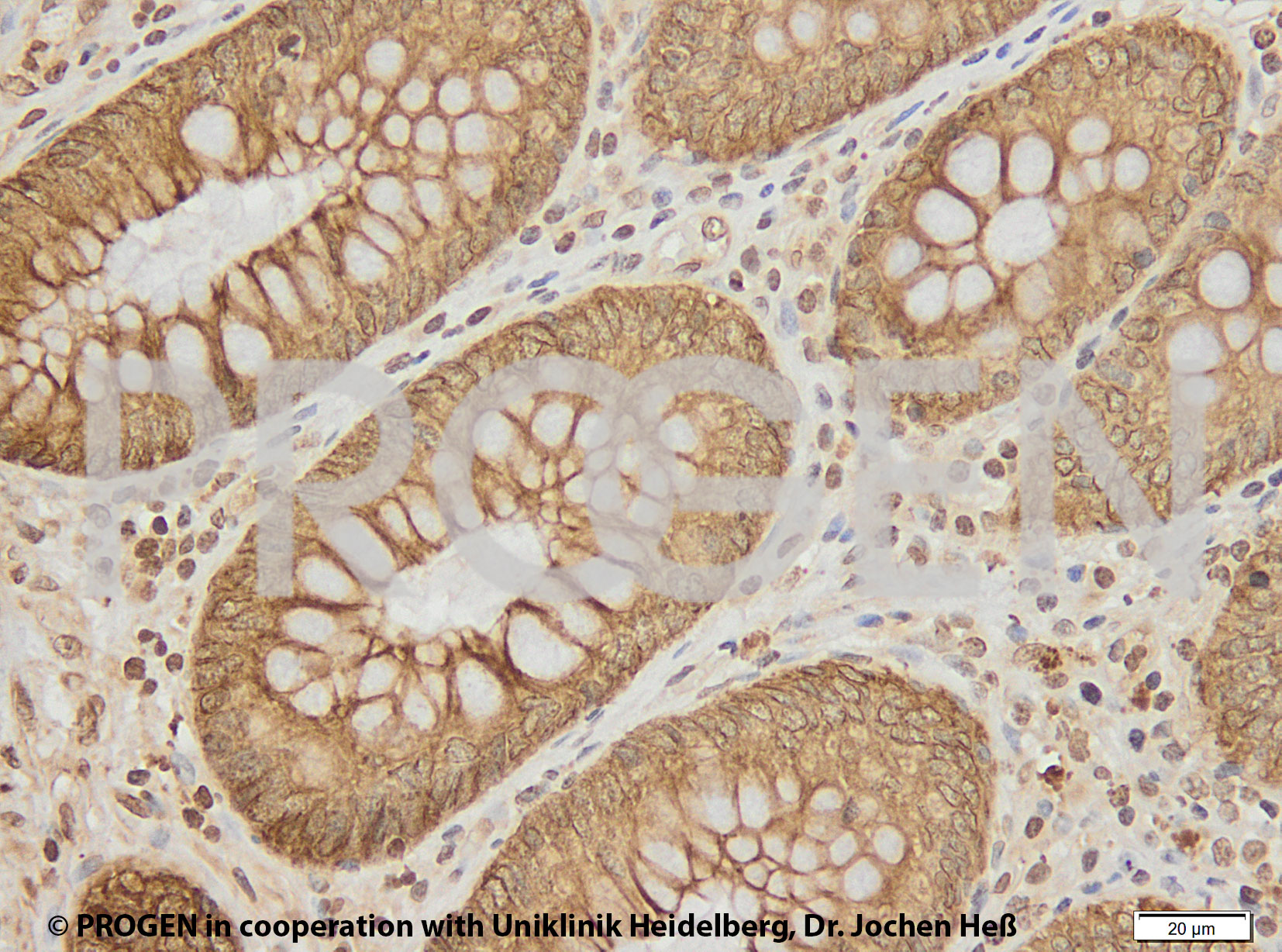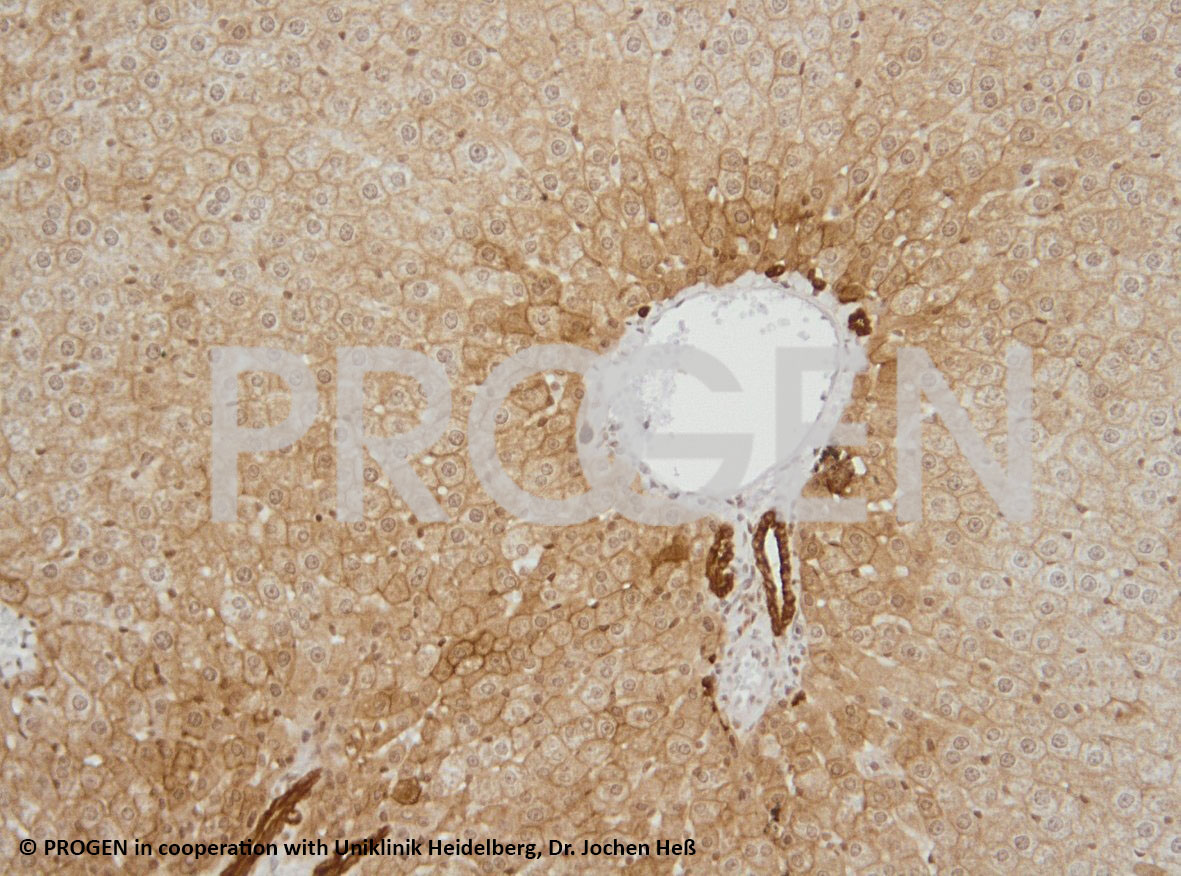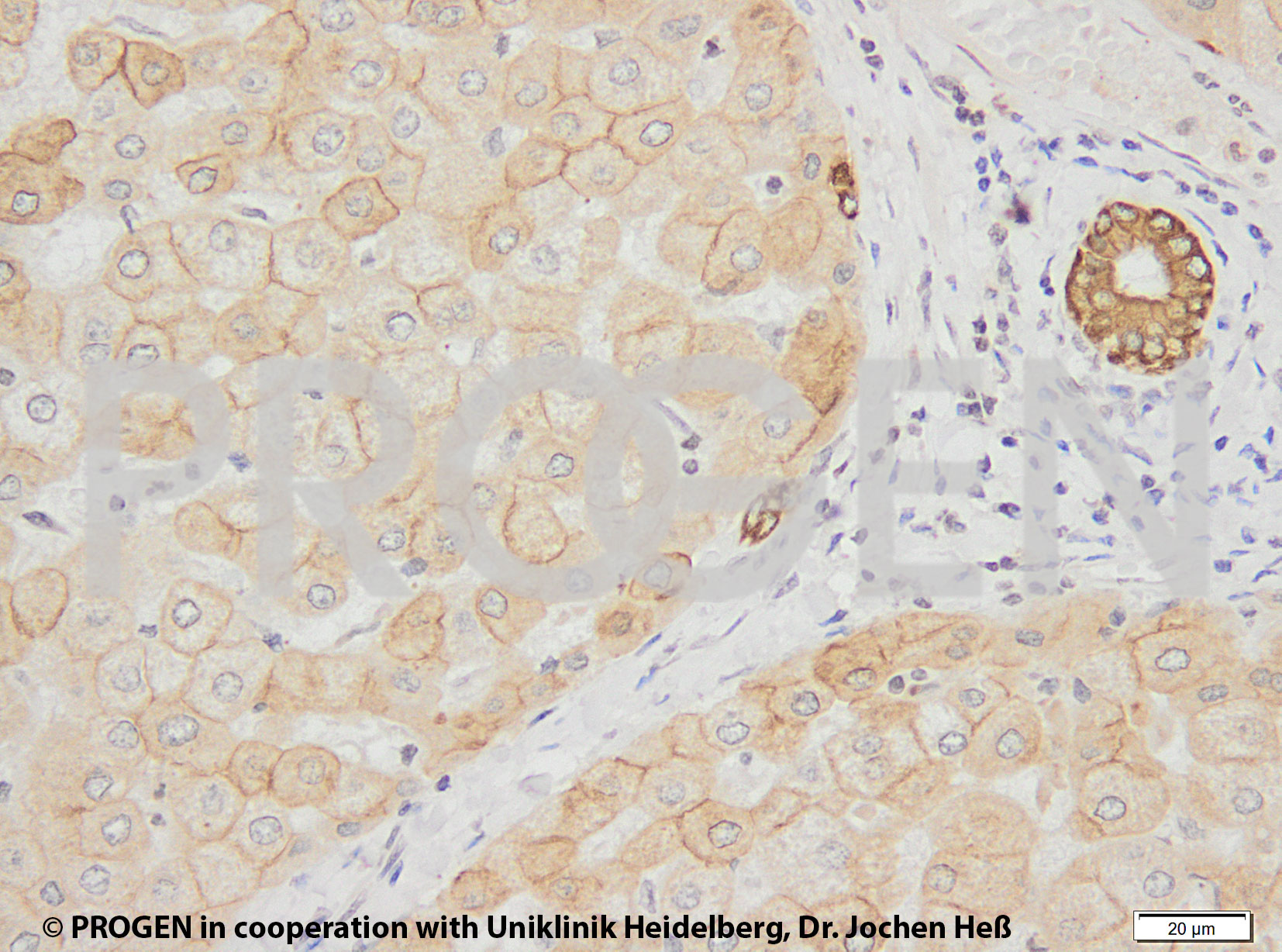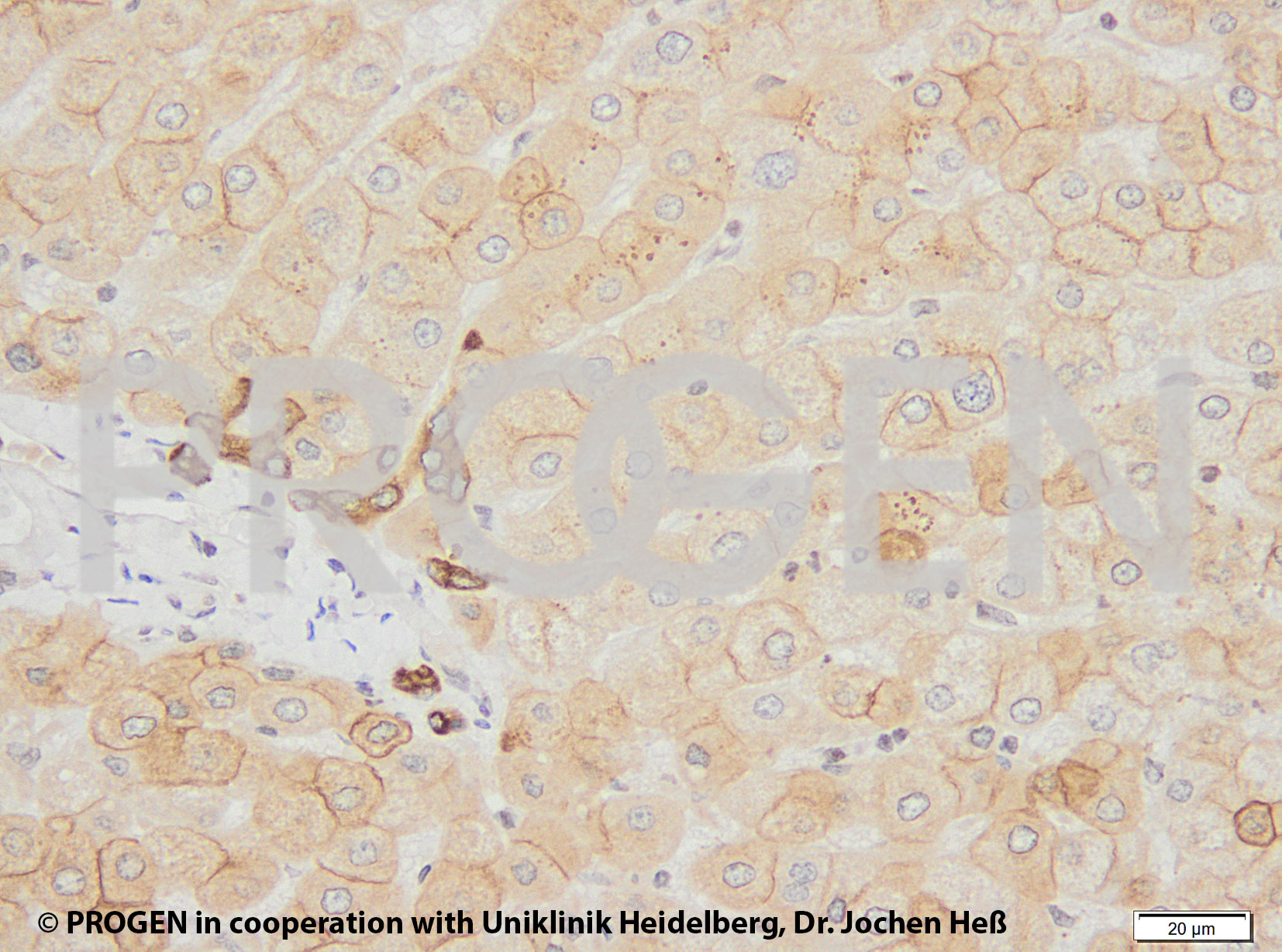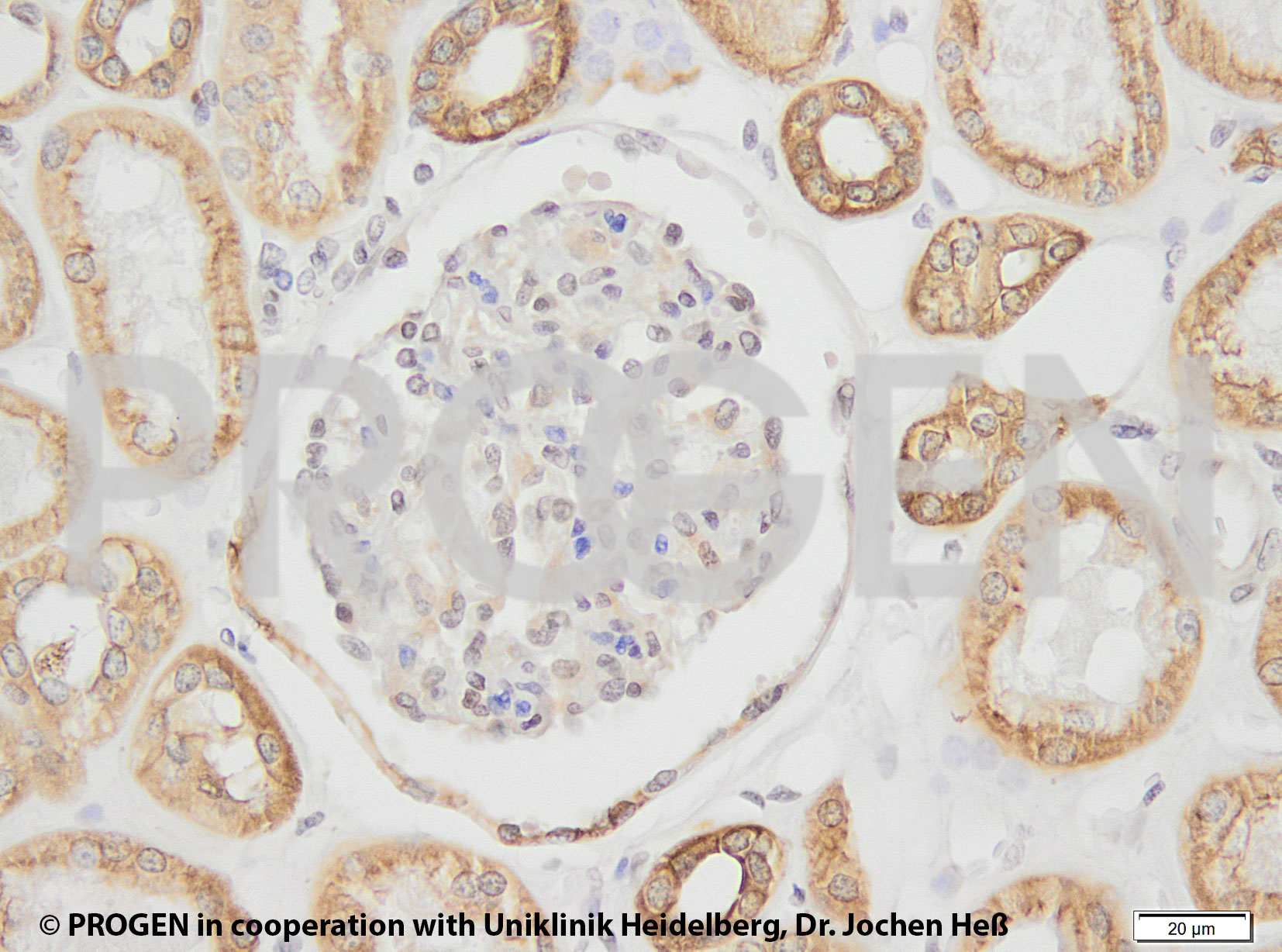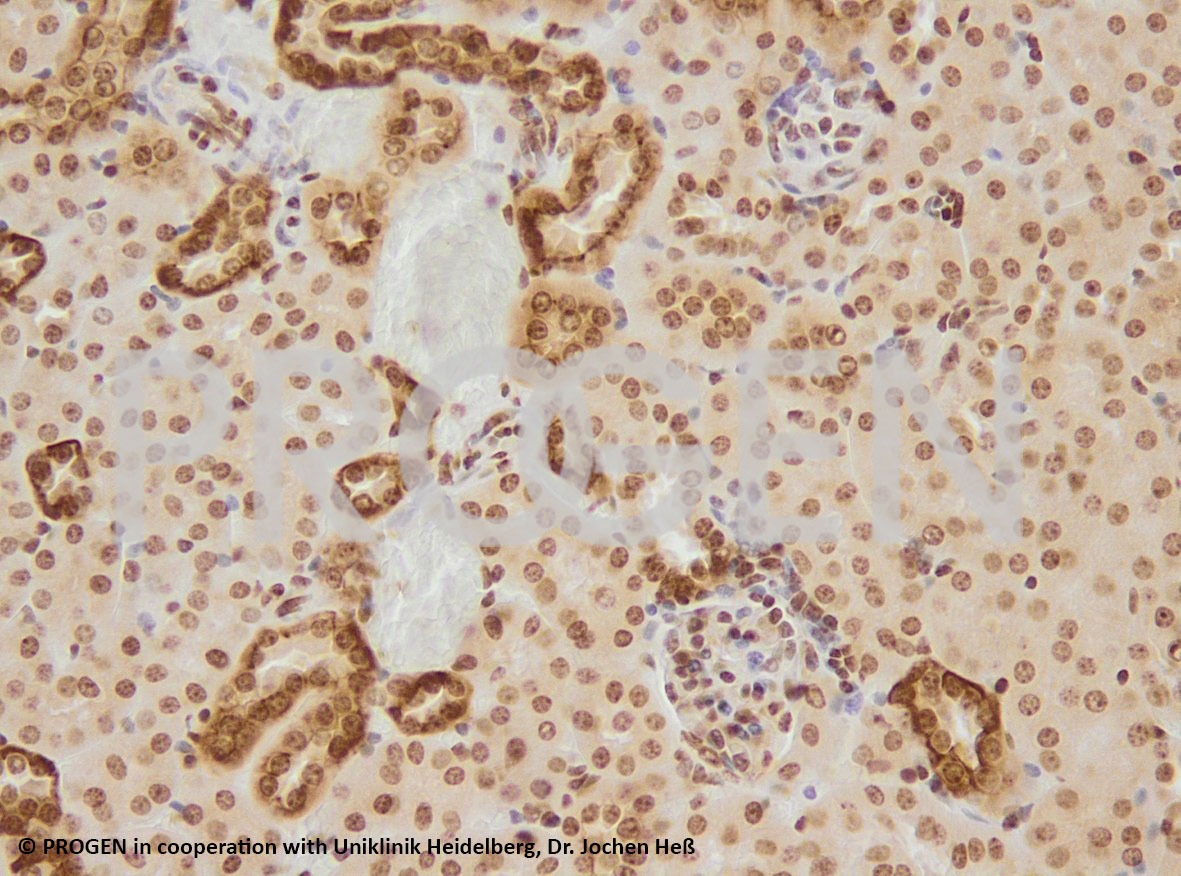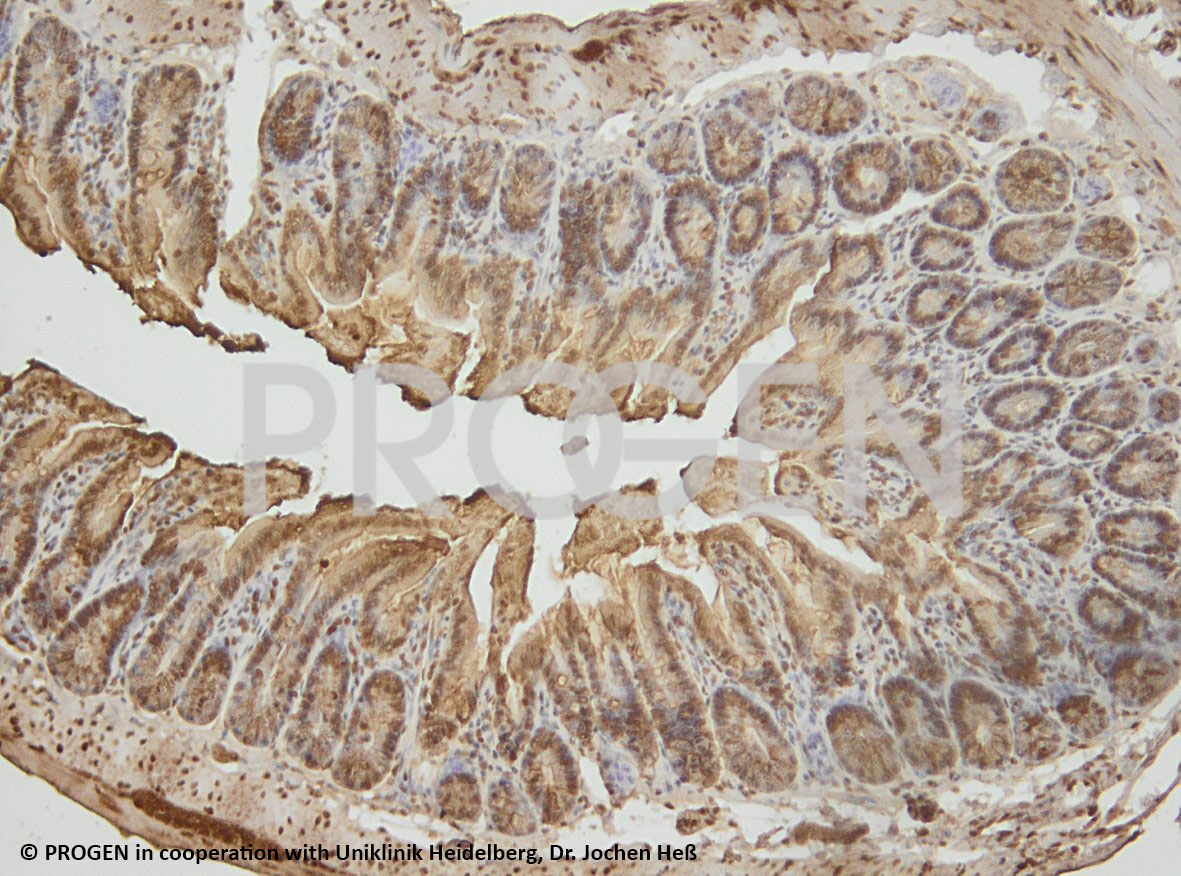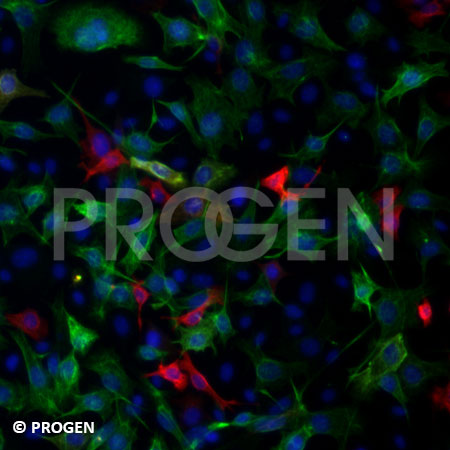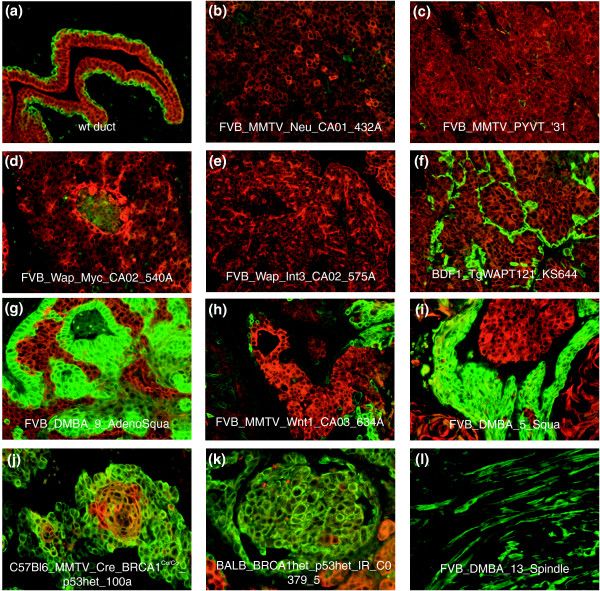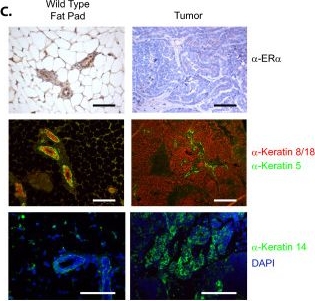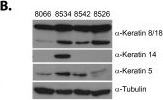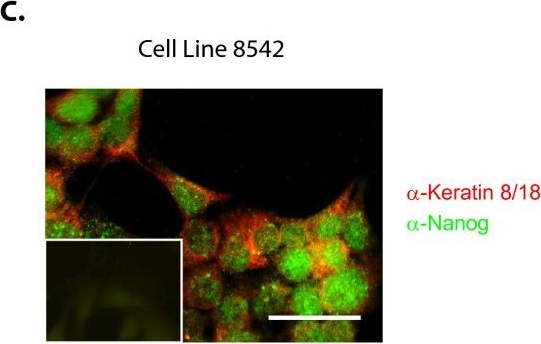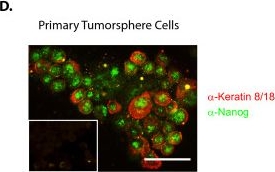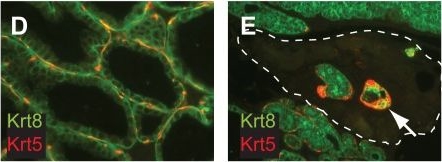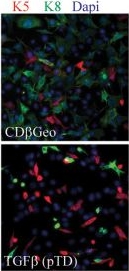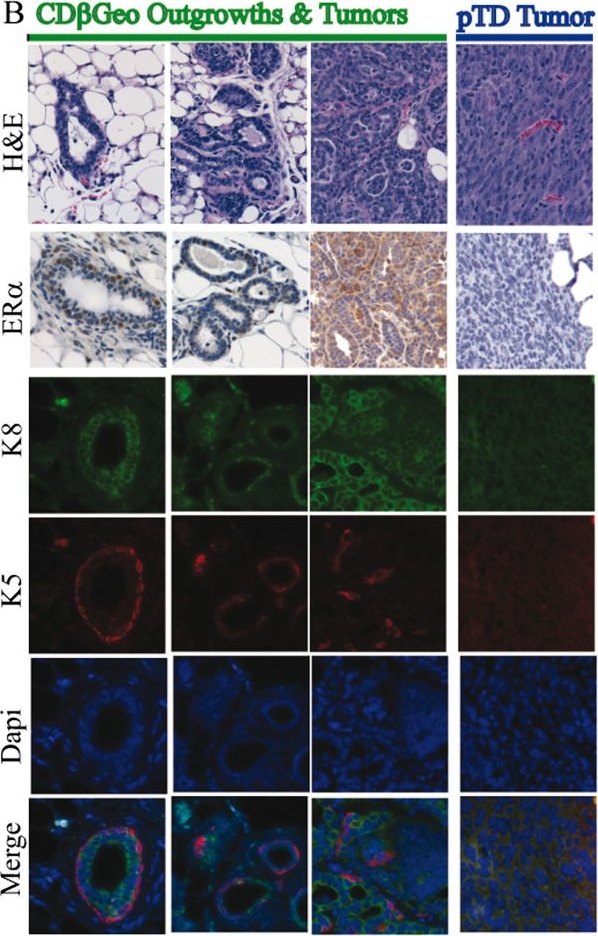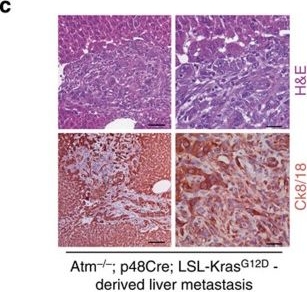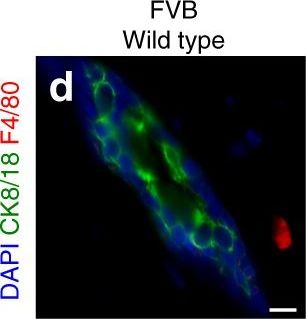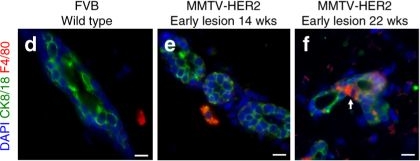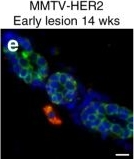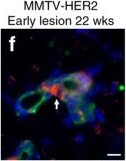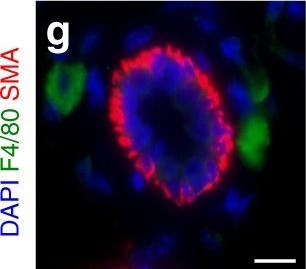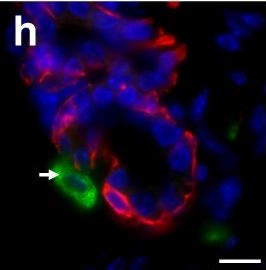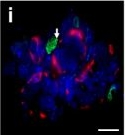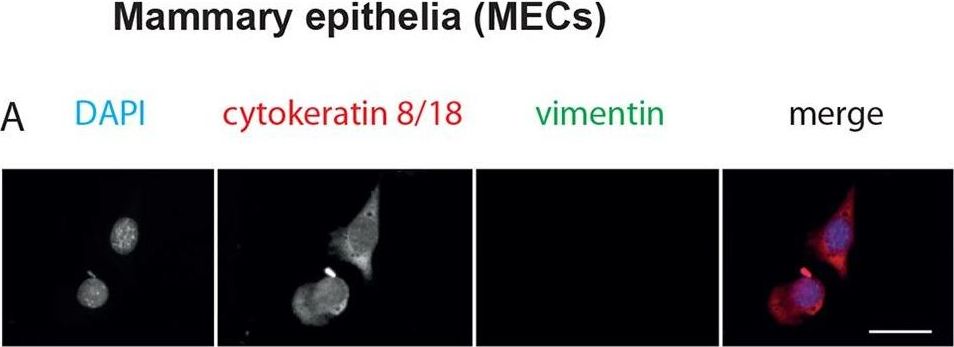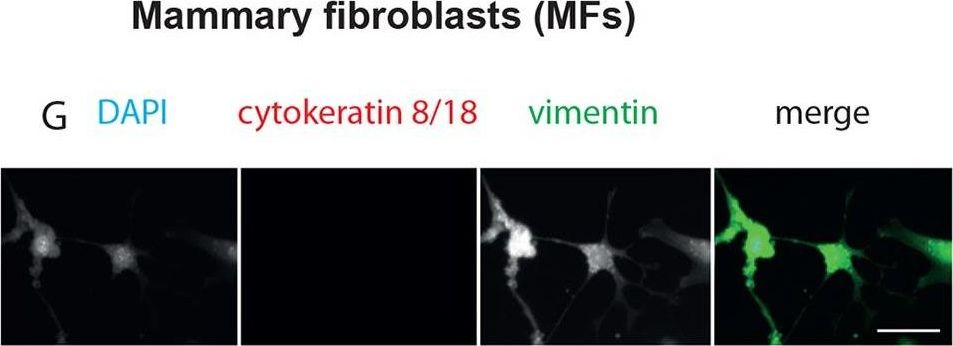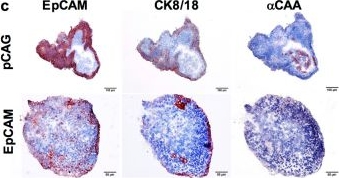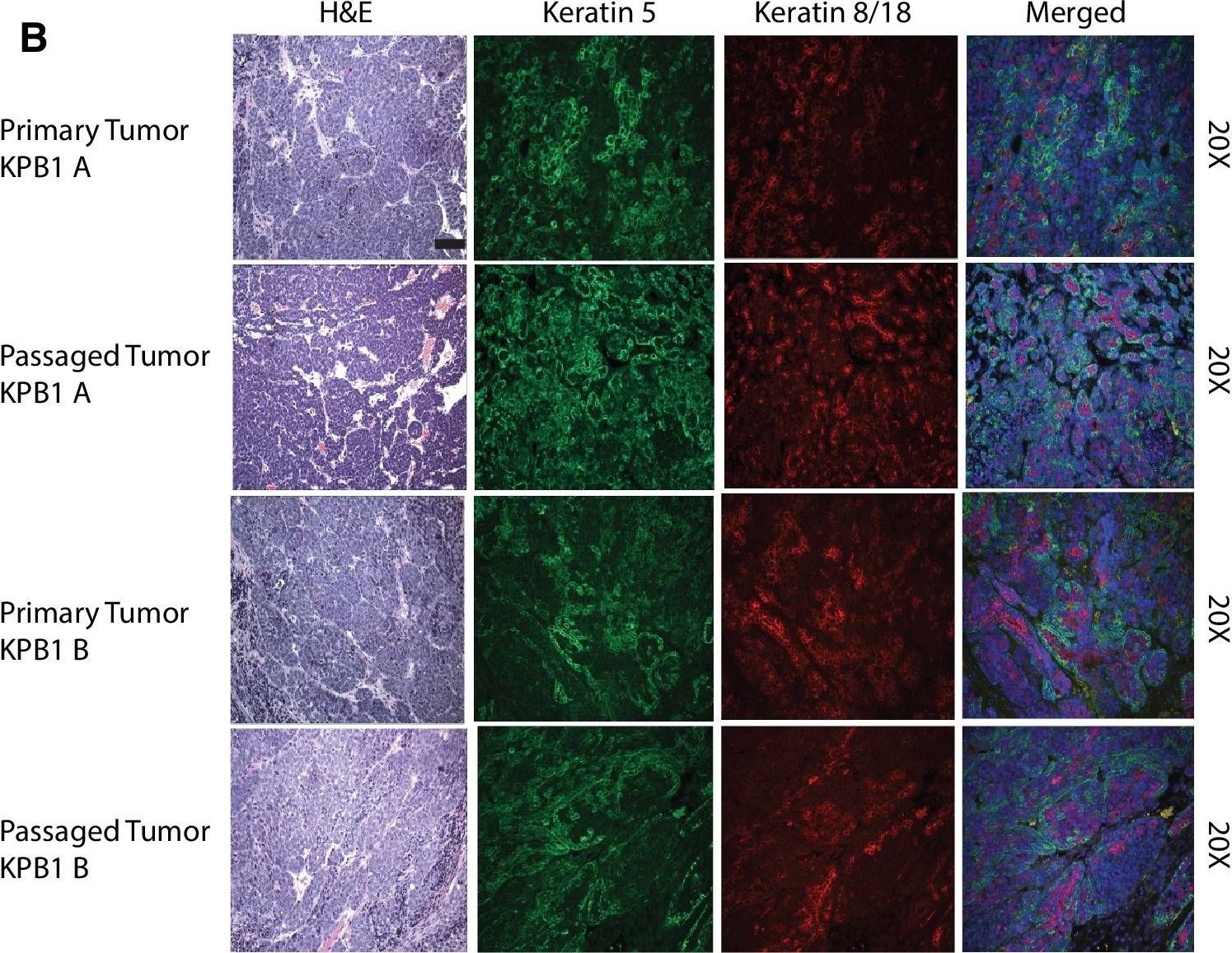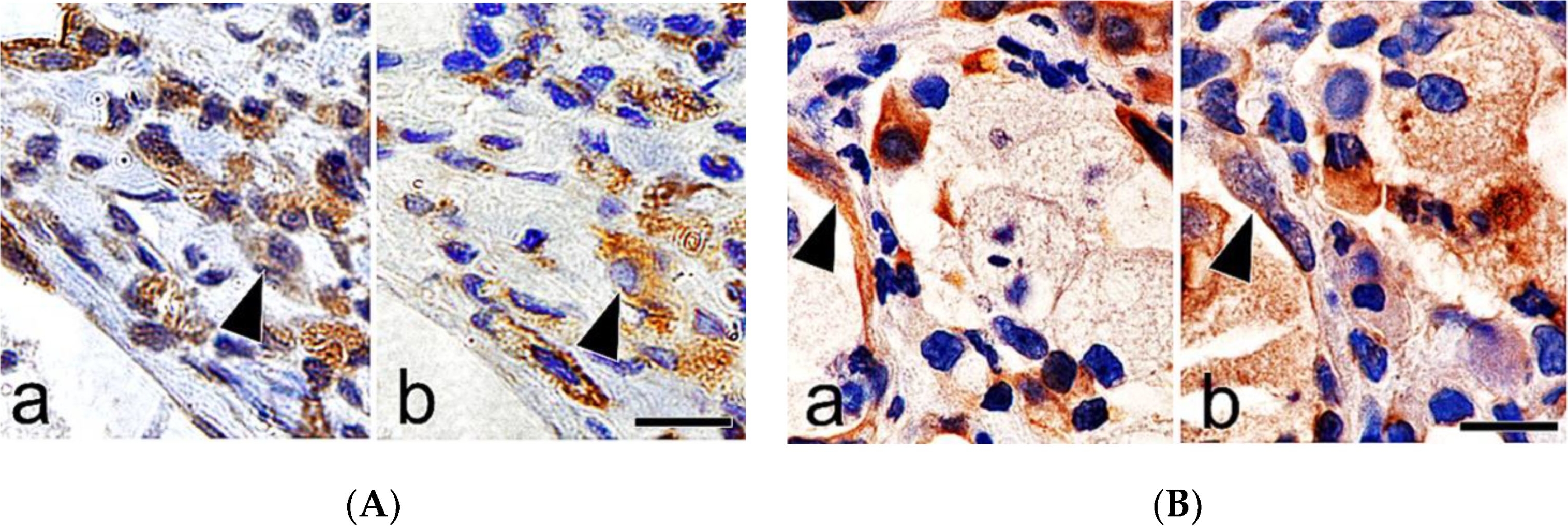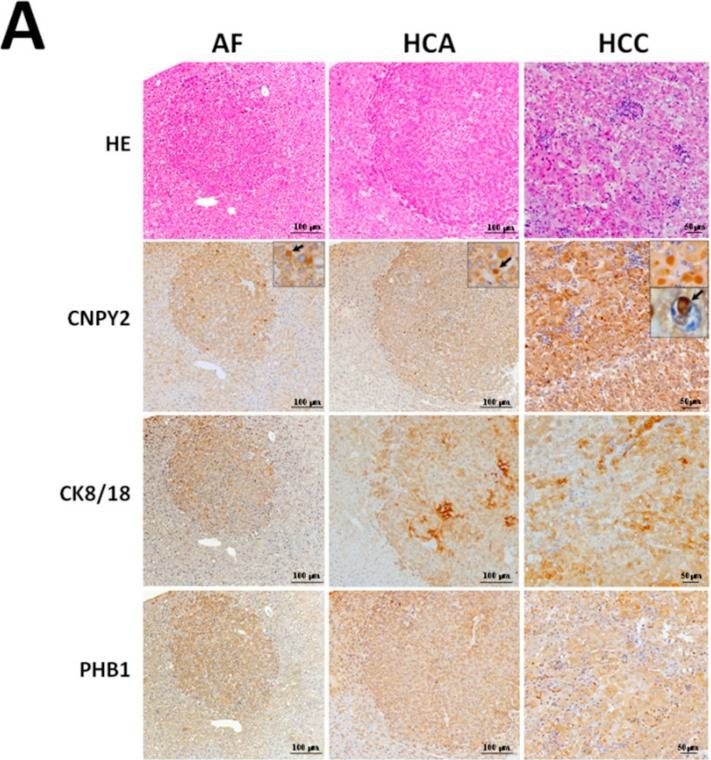Highly published
anti-Keratin K8/K18 guinea pig polyclonal, serum
Key Features
- Stabilized antiserum
- Guinea pig polyclonal
- Suitable for ELISA, IHC and WB
- Reacts with bovine, chicken, human, mouse, rat and hamster
Product description
| Quantity | 100 µl |
|---|---|
| Antibody Type | Polyclonal |
| Host | Guinea pig |
| Conjugate | Unconjugated |
| Application | ELISA, IHC, WB |
| Purification | Stabilized antiserum |
| Reactivity | Bovine, Chicken, Hamster, Human, Mouse, Rat |
| Storage | Short term at 2-8°C; long term storage in aliquots at -20°C; avoid freeze/thaw cycles |
| Intended use | Research use only |
| Immunogen | Keratin K8/K18 filaments, reconstituted from purified bovine keratins K8 and K18 |
| Formulation | Contains 0.09% sodium azide |
| UniprotID | P05786 (Bovine), A0A1L1RIW5 (Chicken), P05787 (Human), P11679 (Mouse), Q10758 (Rat) |
| Synonym | Keratin, type II cytoskeletal 8, Cytokeratin-8, CK-8, Keratin-8, K8, Type-II keratin Kb8, KRT8, CYK8 |
| Note | Centrifuge prior to opening |
Applications
| Tested applications | Tested dilutions |
|---|---|
| Immunohistochemistry (IHC) - frozen | 1:100 |
| Immunohistochemistry (IHC) - paraffin | 1:50-1:100 (microwave treatment recommended) |
| ELISA | Assay dependent |
| Western Blot (WB) | 1:1,500-1:2,500 |
Background
Reactive polypeptide (specificity): Mr 52,500 and 45,500; Keratins K8 and K18 (formerly also designated cytokeratins 8 and 18) of simple type epithelium.
Tumors specifically detected: all adenocarcinoma tested, undifferentiated carcinoma, hepatocellular carcinoma, cervix carcinoma.
References/Publications (33)
Publication
Species
Application
Species
human
Application
IHC-IF (paraffin)
Species
mouse
Application
IHC
Species
rat
Application
IHC (paraffin)
Species
mouse
Application
IHC-IF (paraffin)
Species
mouse
Application
IHC (frozen)
Species
mouse
Application
ICC-IF
Species
mouse
Application
IHC (frozen)
Species
mouse
Application
ICC-IF
Species
mouse
Application
IHC (paraffin)
Species
mouse
Application
IHC (free floating sections)
Species
human
Application
IHC (paraffin)
Species
mouse
Application
IHC
Species
mouse
Application
IHC (paraffin)
Species
mouse
Application
IHC (paraffin),ICC-IF
Species
mouse
Application
IHC (paraffin)
Species
mouse
Application
IHC (paraffin)
Species
mouse
Application
WB,IHC (paraffin),ICC-IF
Species
mouse
Application
WB
Species
mouse
Application
IHC (paraffin)
Species
human
Application
IHC (frozen)
Species
mouse
Application
IHC (paraffin)
Species
rat
Application
IHC (free floating sections)
Species
human
Application
IHC (frozen)
Species
human
Application
IHC (frozen)
Species
mouse
Application
IHC (paraffin)
Publication
Hüsemann, Y. et al. Systemic Spread Is an Early Step in Breast Cancer. Cancer Cell 13, 58–68 (2008).
Species
mouse
Application
ICC-IF
Species
human
Application
IHC (paraffin)
Species
mouse
Application
WB,IHC (paraffin)
Species
human
Application
IHC (frozen)
Species
mouse
Application
IHC (paraffin)
Species
mouse
Application
WB
Species
human
Application
WB,ICC-IF
Species
human
Application
IHC (frozen),IEM
Downloads
File
Category
Size
Filetype
Q & A's
There aren't any asked questions yet.
Customer Reviews
Login
FAQs
- PVDF membranes show better results than nitrocellulose (higher capacity, allows for more stringent washing conditions in case of background problems).
- Use freshly prepared blocking solution (e.g. 5% nonfat dry milk, 0.05% Tween 20), block for at least 1 h at room temperature.
- Use the antibody in a higher dilution, but prolong incubation time and exposure time.
- Always use a fresh aliquot of the antibody.
- Do not repeatedly freeze the antibody (eventually centrifuge shortly after thawing to remove cryo-precipitates).
- Include an additional washing step.
You might also try more stringent wash conditions, e.g. add 0.5 M NaCl to the wash buffer. - Always use a fresh aliquot of secondary antibody.
- In case you use ECL most the guinea pig antibody should be diluted further in order to get rid of the background.
The concentration of unpurified supernatant, ascites, unpurified guinea pig serum and unpurified rabbit serum is not determined.
The concentration of purified antibodies is mentioned on the datasheet.
For prediluted antibodies the concentration may vary from lot to lot. The concentration of these antibodies is not mentioned on the datasheet and can be requested at support@progen.com.
The concentration of purified antibodies is mentioned on the datasheet.
For prediluted antibodies the concentration may vary from lot to lot. The concentration of these antibodies is not mentioned on the datasheet and can be requested at support@progen.com.
Most of our purified mouse antibodies contain 0.5% BSA as stabilizer. If BSA was added to the antibody solution, it is stated in the datasheet.
The supernatant format contains FCS proteins from cell culture medium supplemented with FCS.
The serum antibodies contain other proteins present in serum.
The supernatant format contains FCS proteins from cell culture medium supplemented with FCS.
The serum antibodies contain other proteins present in serum.
Lyophilized antibodies can be stored at 2-8°C until expiration.
Most of our liquid antibodies and reconstituted lyophilized antibodies may be stored for short term storage (up to 3 month) at 2-8°C. For long term storage we recommend to store the antibody at -20°C in aliquots. Please avoid freeze and thaw cycles.
Most of our conjugated antibodies should be stored at 2-8°C.
The individual storage conditions are mentioned on the datasheet.
Most of our liquid antibodies and reconstituted lyophilized antibodies may be stored for short term storage (up to 3 month) at 2-8°C. For long term storage we recommend to store the antibody at -20°C in aliquots. Please avoid freeze and thaw cycles.
Most of our conjugated antibodies should be stored at 2-8°C.
The individual storage conditions are mentioned on the datasheet.
The expiration date of our antibodies is indicated on the product label.
- Methanol/ acetone fixation: Immerse slide in precooled (-20°C) methanol for 5 min, immerse in precooled (-20°C) acetone for 30-60 sec, let specimen air dry before antibody incubation.
- Methanol/ acetone fixation plus detergent permeabilization: After methanol/ acetone fixation and air-drying dip slide either in a solution containing 0.1-0.2% Triton X-100 in PBS or in 0.1% saponin in PBS for 1-5 min at room temperature (enhances accessibility of many cytoskeletal antigens).
- Air-drying of the section.
- Block with the serum of the species in which the secondary antibody was raised for 30 min.
- Incubation with 1st antibody 1 h at RT in moist chamber.
- Wash 3x with PBS.
- Incubation with appropriate fluorescent secondary antibody, 30-60 min at RT.
- Wash 3x with PBS.
- Immerse shortly into ethanol.
- Let air dry.
- Cover with mounting medium.
Most of our antibodies contain 0.09% sodium azide as preservative. If a preservative is added, it is mentioned in the datasheet.
The optimal antibody dilution for your specific protocol and application needs to be titrated in your lab with your equipment and sample. The optimal dilution may vary between protocols and samples. A good dilution for starting the titration is the dilution mentioned in the datasheet. If the sample needs a specific treatment (eg. Antigen retrieval for IHC on FFPE sections) this should also be mentioned on the antibody datasheet.
PROGEN antibodies are shipped at ambient temperature. The antibodies are stable at ambient temperature for the shipment period. Please store the antibodies as indicated in the datasheet upon arrival.

